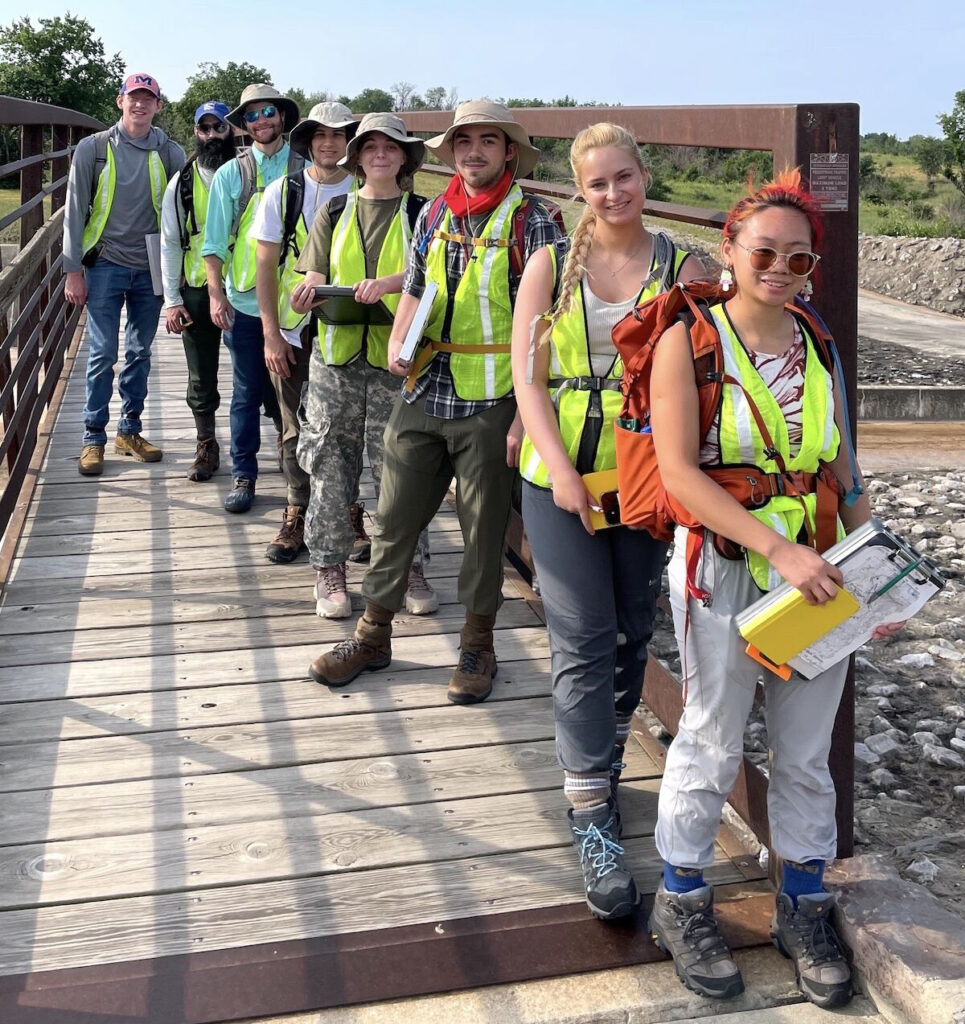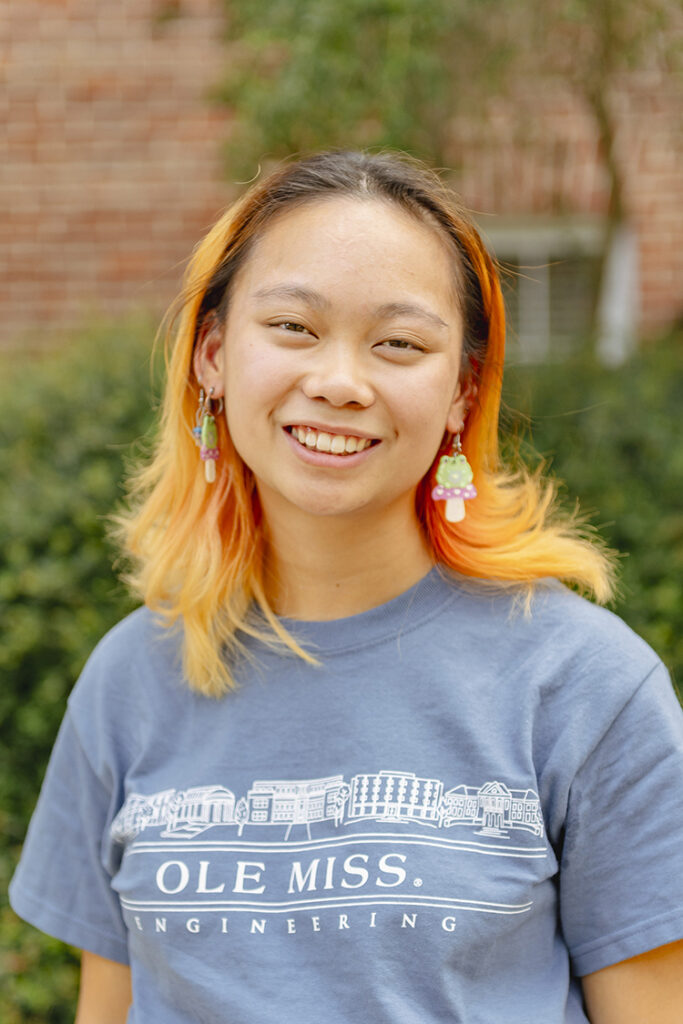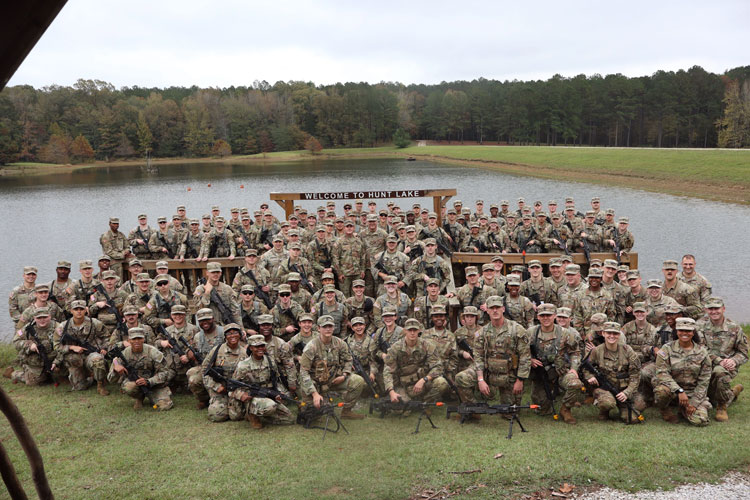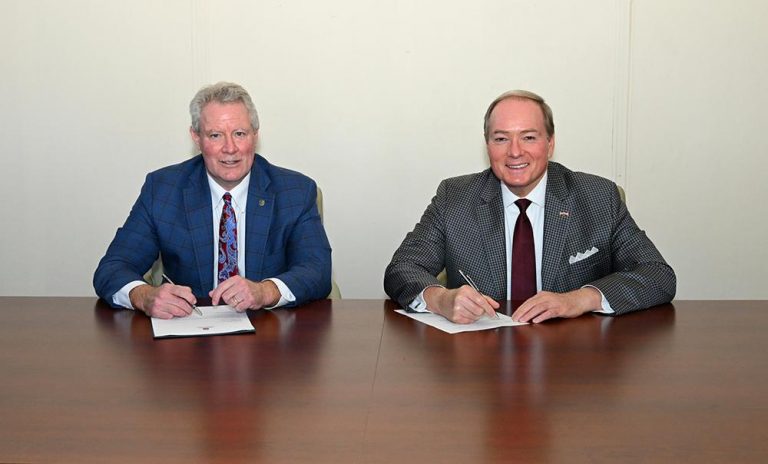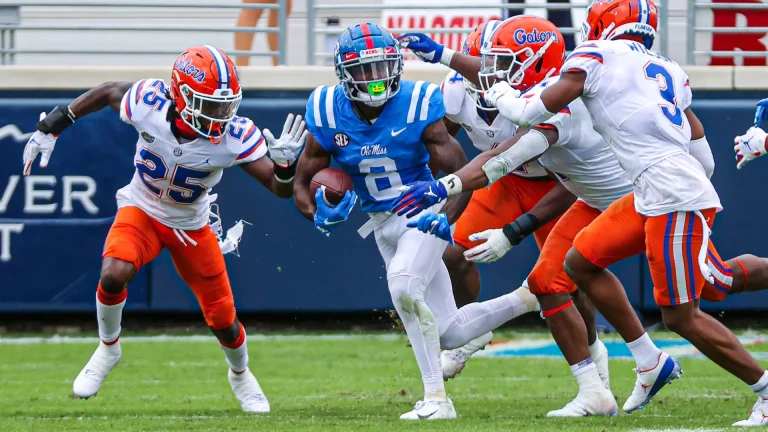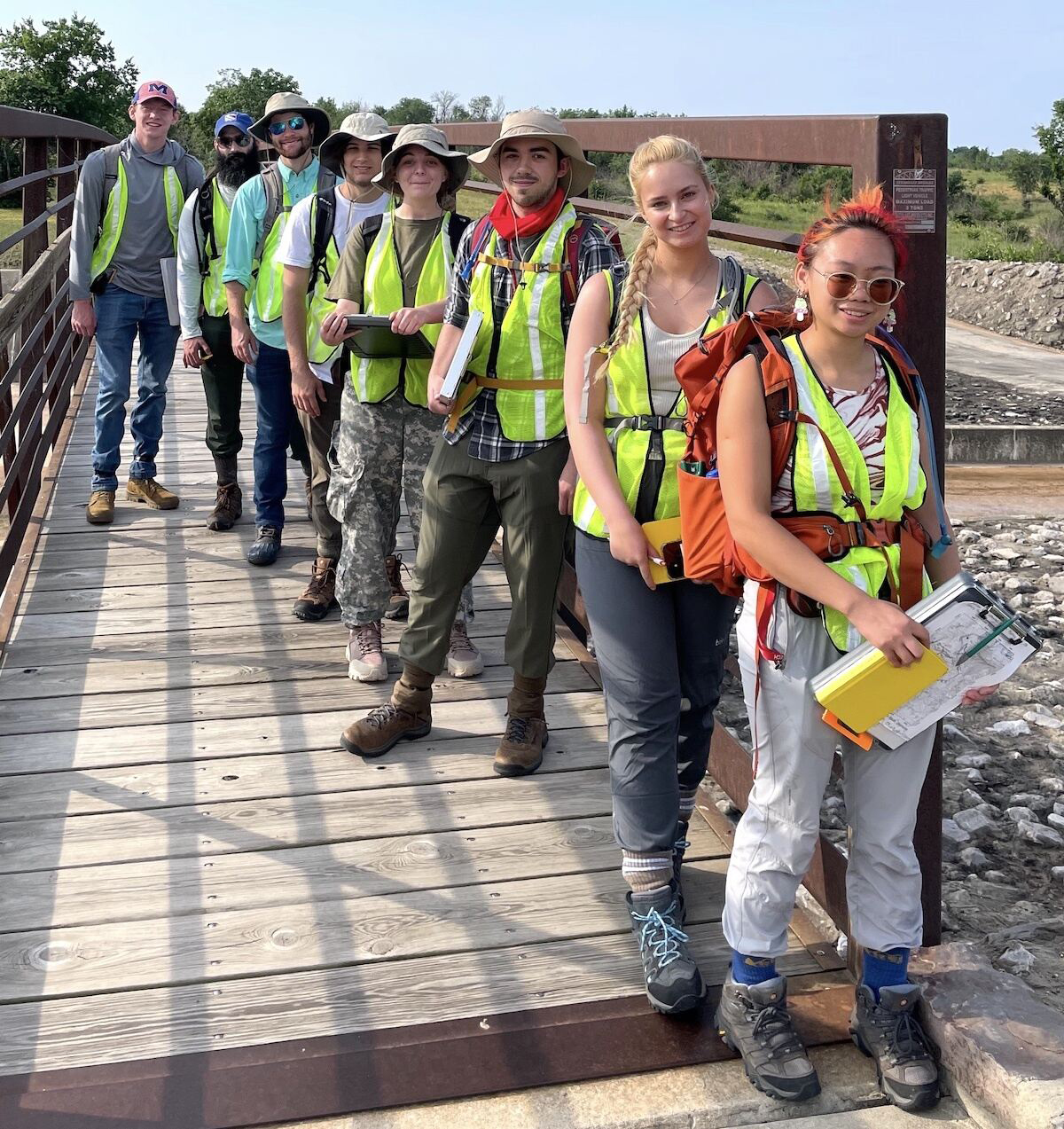
Elsie Buskes (right), a junior geology major from Oxford at the University of Mississippi, has been selected by the Environmental and Engineering Geophysical Society for its annual scholarship. Buskes completed a spring 2022 internship with the porous media group in the university's National Center for Physical Acoustics, where she helped researchers with work surrounding drinking water issues. Submitted photo
Elsie Buskes to publish essay, be recognized at March symposium
The Environmental and Engineering Geophysical Society has selected a University of Mississippi student as the sole recipient of its annual scholarship.
Elsie Buskes, a junior geology major from Elsie Buskes,and member of the Sally McDonnell Barksdale Honors College, will receive $1,000 to help her pursue a career in near-surface geophysics, which involves analyzing the ground just below the surface.
Buskes will be recognized in March at the 2024 Symposium on the Application of Geophysics to Engineering and Environmental Problems in Tucson, Arizona, and have her essay published in the society’s magazine, FastTIMES.
“I’m hoping to use this scholarship to attend workshops at the conference,” Buskes said. “These workshops will offer training on software that I’ve never used before.
“It’s very exciting that I’ll be talking about something I’m interested in and will be able to network with others. I think it will be a great opportunity.”
Buskes’ interest in geophysics began during a spring 2022 internship with the porous media group in the university’s National Center for Physical Acoustics.
Researchers were looking for a student who could assist with their work surrounding drinking water problems in a time of increasing population demand. It would require the use of geophysics – something Buskes knew little about at the time – to help discover water sources and determine the best way to extract it.
Under the guidance of Leti Teklu Wodajo, NCPA research scientist, Buskes expanded her knowledge on basic physics and how to apply it to real situations.
“This award is a testament to the hard work and dedication Elsie has put into her work, and I am proud of her accomplishments to date,” Wodajo said. “I hope this award will serve as a springboard for greater achievement in her study.”
By summer 2022, Buskes participated in her first geophysics survey. Her team used electrical resistivity tomography, a technique using multiple electrodes to investigate groundwater and soil moisture and determine the best place to drill a well.
Buskes said she learned a great deal about surveying methods through this experience.
“Before I performed the survey, I read a little bit online about how it was performed and what everything was supposed to look like,” she said. “I learn better by seeing and doing, so when I was at the site, I was really able to get a better understanding.
“I felt better about applying my own knowledge to work that I had done myself.”
The team presented its findings at the Geological Society of America and Mississippi Water Resources Conference. Buskas also gave a talk on the results of the study at the University of Mississippi Field Station.
In the future, Buskes plans to use her work for NCPA as the basis of her Honors College thesis.

